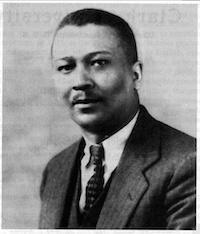Francis Sumner (Francis Cecil Sumner)

Francis Sumner’s area of focus was in investigating how to refute racism and bias in the theories used to conclude the inferiority of African Americans. Sumner’s work is thought to be a response to the Eurocentric methods of psychology. Upon his graduation Sumner accepted a professor position at Wilberforce University in the fall of 1920. While at Wilberforce, Sumner was a professor of psychology and philosophy. And in the summer of 1921 he went to teach at Southern University in Louisiana, a HBCU. In fall of 1921 he accepted a position at West Virginia Collegiate Institute, where he wrote many articles dealing with the state of colleges and acceptance of African-Americans or the lack thereof. Sumner used these articles to support and raise awareness for the views brought up by Booker T. Washington and W.E.B. Dubois. Francis Sumner remained for the next 7 years. Over time, he failed to receive funding for his research. He claimed that race prejudice was the cause of his inability to attain his and other African American scientists’ funding. In his time at these universities he faced financial difficulty, because white research agencies refused to provide funding for him. From 1928 until his death in 1954, Sumner served as the chair of the psychology department at Howard University. Francis Sumner is credited, along with Max Meenes and Frederick P. Watts, with helping develop the psychology department at Howard University. He also is known for teaching famous social psychologist Kenneth B. Clark, who was an influential figure in the civil rights movement. He encouraged that psychology should move away from philosophy and the school of education.
Francis Sumner resigned from West Virginia Collegiate Institute on August 31, 1928. He then moved on to Howard University in the fall of 1928, and became the acting chairman and professor, until 1930 upon which time he became the fully appointed chair of Psychology and succeeded in making the department independent from Philosophy. Sumner held the position until he died on January 12, 1954. In an attempt to show support and praise for the excellence of his students, Sumner created an incentive program. This award was given to one of his psychology students who submitted the most superlative essay on a specific theme. One recipient of this award was Kenneth Bancroft Clark. Kenneth Clark was the first African American president of the APA. He went on to study race psychology and used his research on prejudice, discrimination, and segregation in the developing child in the famous Supreme Court case Brown v. Board of Education. Sumner had at least 45 publication throughout his career. His interest in applied psychology led to multiple publications on color and vision. Sumner’s primary focus was in the psychology of religion. He gave a paper to the International Congress of Religious Psychology (Vienna). The paper was on “The Mental Hygiene of Religion.” Francis Sumner was one of the first academics to contribute to the fields of psychology, religion, and the administration of justice Another of Sumner’s notable achievements was his work with the Journal of Social Psychology and the Psychological Bulletin. For years he was the official abstractor for both journals. He began writing the abstracts in 1946, between the years 1948 and 1949 he wrote 505 abstracts. Sumner wrote over 2,000 abstracts during his time with these two journals. Most of the abstracts he wrote were from French and German authors, others were Russian, Spanish, and English. It was Sumner’s fluency in these languages that enabled him to make this contribution.
Francis Sumner was always described as motivating and encouraging (Bayton, 1975). Kenneth Clark once stated, “And he didn’t just teach psychology. He taught integrity. And, although he led the way for other Blacks in psychology, Sumner would permit no nonsense about there being anything like “Black psychology” -any more than he would have allowed any nonsense about “Black astronomy.” In this and many other ways, Sumner was a model for me. In fact, he has always been my standard when I evaluate myself.” Francis Sumner died of a heart attack while shoveling snow outside his home in Washington D.C. on January 12, 1954.
Born
- December, 07, 1895
- USA
- Pine Bluff, Arkansas
Died
- January, 12, 1954
- USA
- Washington D.C.
Cause of Death
- heart attack
Cemetery
- Arlington National Cemetery
- Arlington, Virginia
- USA


